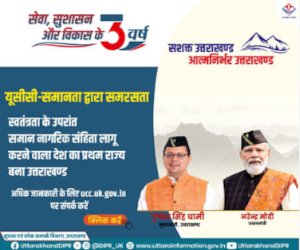The Uttarakhand High Court has strongly criticized the state government for failing to control illegal river mining and directed it to present a detailed action plan by Monday to stop machine-based operations. The bench, headed by Chief Justice G. Narendra and Justice Subhash Upadhyay, expressed concern that commercial activities are being allowed at the cost of environmental protection.
Our correspondent reports that during the hearing, top officials including Principal Chief Conservator of Forests (PCCF) Dr. Sameer Sinha, Forest Development Corporation Managing Director Neena Grewal, and Irrigation Secretary Yugal Kishore Pant appeared before the bench through video conferencing. The court found their explanations unsatisfactory and said earlier orders had not been implemented properly.
The case stems from Public Interest Litigations filed against rampant, unscientific riverbed mining. One of the petitions was submitted by Haldwani resident Santosh Hernwal, who pointed to the destruction caused by machine use in rivers. Our correspondent adds that the court referred to a Supreme Court ruling, which allows only manual mining, and questioned why heavy machinery continues to be deployed despite these restrictions.
The High Court has now ordered the government to draft a comprehensive action plan. This plan must outline immediate steps to stop dredging and mechanized mining in rivers, and also present long-term strategies to safeguard river ecosystems. Our correspondent reports that the bench highlighted the environmental consequences of unchecked mining, including riverbank erosion, heightened flood risk, and disruption of river flow at confluences due to debris.
The court also demanded accountability from departments authorizing such work. It asked why private contractors are being permitted to flout environmental norms and why the state has failed to enforce previous directives. Officials were warned that inaction will not be tolerated, and personal responsibility could be fixed for negligence.
Our correspondent adds that the next hearing is scheduled for September 15, and key officials including the PCCF, Forest Department heads, and the Irrigation Secretary must appear in person. The judges made it clear that the action plan should not be a vague statement, but a time-bound framework with enforcement mechanisms, specific dates, and clear accountability.
Environmentalists welcomed the court’s intervention, saying unchecked river mining is a major cause of ecological imbalance in Uttarakhand. Excessive dredging not only alters natural river channels but also damages farmland, threatens bridges, and increases the vulnerability of nearby communities. Residents living near riverbanks have repeatedly complained of land loss and crop destruction due to mining debris.
Our correspondent reports that activists see this order as an important step toward protecting fragile Himalayan rivers. They argue that while economic activity is necessary, it cannot come at the expense of ecological stability. The court’s insistence on a strict action plan could help bring lasting reform if implemented sincerely by the state government.
The High Court’s directive sends a strong signal that illegal mining will no longer be tolerated. With monsoon rains already swelling rivers, the court has underlined the urgency of enforcement, warning that failure to act now could lead to even greater environmental and social damage in the future.


























